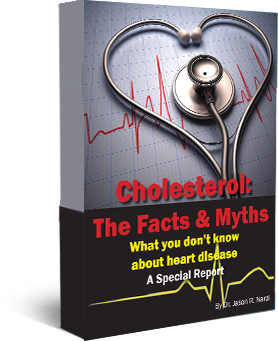Vascular Dementia Risk Particularly High in Type-2 Diabetes
Vascular dementia is a real terror – The risk of forgetting a life of memories,loved ones, and even who you were. But there is a link between dementia and common, reversible health problem: Type-2 Diabetes according to a Medscape article.
“Those with type-2 diabetes had a statistically significant 35% increased chance of having vascular dementia.
Comparing those with hemoglobin A1c of less than 7% with those whose A1c was above 10.1%, there was a 93% increase in the risk for vascular dementia, a 67% increase in the risk for non-vascular dementia, and a 34% higher risk for Alzheimer’s disease-associated dementia.”
What is Vascular Dementia?
Vascular Dementia, also known as Multi-Infarct Dementia, is the second most common form of dementia after Alzheimer’s. Vascular dementia is caused by multiple small strokes. According to the Mayo Clinic, it “…causes memory loss in older adults, particularly in those at higher risk of stroke due to obesity or diabetes. In early stages, the condition causes cognitive difficulty with reasoning and judgment. In later stages, memory is affected.” Both Vascular Dementia and Alzheimer’s Disease are associated with insulin-resistance, or Type-2 Diabetes.
According to the UK’s Alzheimer Society, “A person who has had a stroke, or who has diabetes or heart disease, is approximately twice as likely to develop vascular dementia.” That is a very significant risk, especially when most of the contributing factors are preventable.
What’s the Link Between Type-2 Diabetes and Vascular Dementia?
Insulin resistance causes an excess of sugar, or glucose, in the blood. Over time this excess causes something called Advanced glycation end products, or AGEs. Basically these are proteins or fats that are glycated after exposure to carbohydrates, aka sugar. They are used as biomarkers, the most commonly known is the A1c used to measure severity of diabetic conditions. AGEs are prevalent in vascular diabetic conditions and cause atherosclerosis, the build-up of plaques on the arterial walls caused by AGEs and oxidative stress. Vascular dementia is when this process happens int he small arteries in the brain.
The combination of oxidative stress and AGEs leads to a dramatic increase in inflammation. This leads to a series of damaging effects to the brain and the neurons. First, there is a change in tau proteins. These proteins, which are responsible for maintaining the tubular structure of neurons, begin to fold incorrectly changing their structure. This change to the tau proteins causes an irreversible change inside the nerve cells referred to as tangles, and the Amyloid-Β (AB) plagues outside of the cells.
In order to clear this tangles and plaques the body activates microglia cells. These are the cells that work like white blood cells in the brain and clean up, or eat, damaged tissue. These cells will clear move towards areas high in AB and neurons that are damages by tau proteins and engulf them. This leads to a loss in brain cell function and numbers.
The Key to Fighting Vascular Dementia is Screening
The factors that lead to vascular dementia are preventable and often times reversible. There are a few simple ways to keep ahead of vascular dementia and its contributors.
- The easiest way to combat this horrible disease is to go for your annual check ups. Looking at blood pressure and basic blood work can be very easy ways to check and monitor risks.
- Advanced testing may be needed to get a better look, especially if there are other factors like a family history of diabetes or dementia. These include A1c, specific genetic tests, especially APOe, and others. An often overlooked contributor is the HPA Axis (hypothalamus-pituitary-adrenal axis) which a major driver in glucose regulation.
- Life style changes that aim to increase heart and overall health are excellent ways to prevent insulin-resistance and keep arterial disease at bay.
- Adding foods to your diet that lower inflammation, increase anti-oxidants, and raise nitric oxide (a natural protector of the circulation system) is a great addition to help keep may serious conditions from starting.
As with all things related to your health, always ask your doctor what’s best for you. We are not all the same, and often times the advice and guidance of a trained doctor or nutritionist can help figure out your exact needs to fit your condition. These should be based on a thorough history, exam, and lab work.
If you or a loved one is interested in learning more about the risk of vascular dementia we would be glad to answer any of your questions.
Call us at 907.789.9549 to set up a no-charge consultation with Dr. Nardi today.



